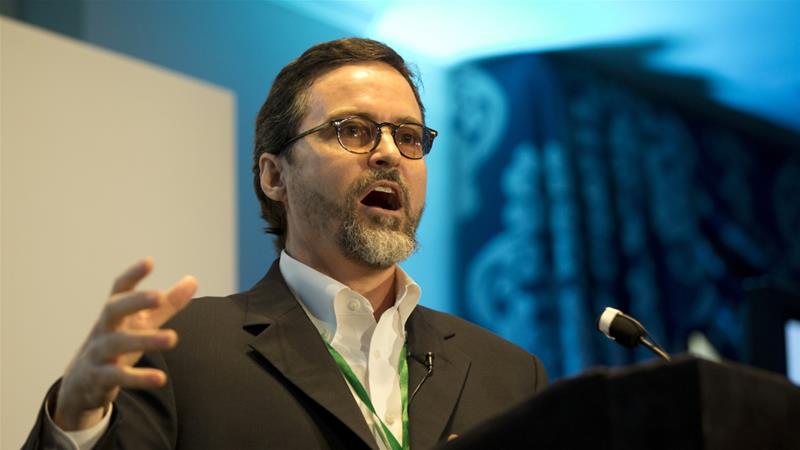Confronting Muslim Sectarianism
Muslim sectarianism is one of the greatest challenges for Muslims in this century. It affects Muslims worldwide and is responsible for much of the discord in local mosques, the splitting of Muslim communities, and for widespread disunity, displacement of populations, and intra-religious killing amongst Muslims around the globe. So just what is Muslim sectarianism, and what is the view of sectarianism according to the sharia? What do Muslims need to know and understand about sectarianism, especially Muslims living in the United States whose Muslim communities are newer and still in their formative stages? For starters, we should know that there is no one singular brand or type of sectarianism.
Muslim sectarianism has many forms, many categories, numerous tentacles and many manifestations. Some of them extremely harmful, some not as harmful, while some are violent, some are non-violent. Sectarianism reveals itself in varying ways according to time, place, people and sub-ideology. Some Muslim sects are relatively new to the fray and some are hundreds of years old. Some sects are built around individuals and some are built around ideas or supplemental philosophies. Some sects are enduring and many are long forgotten, just flashes in the pan.
Muslim sectarianism is a complicated notion with complicated consequences. Some sects are hyper cultish with elaborate rituals and liturgical nuance, and some are very simple. Some sects require initiation, and some don’t. Some sects are descriptive but not necessarily sectarian and some sects are sectarian at their core but vague in their description. Some are both. Some sects are regional and some are international. Some are all over the place and change with the changing of the times. So let’s first take a look at the meaning of the word.
The New Shorter Oxford Dictionary defines a sect as “a body or group of people subscribing to views that are divergent from other people of the same religion, and a sectary as “a person who is zealous in the cause of his sect.” According to Merriam Webster’s Collegiate Dictionary, 11th ed., “sectarian (adj.) is a characteristic of a sect”. It also means having limited character or scope, “(n.) adherent of a sect., narrow, bigoted.” While sectarianize is to make sectarian, according to Wikipedia, sectarianism is “a form of bigotry, discrimination, or hatred arising from attaching relations of inferiority and superiority to differences between subdivisions within a group.” Common examples are denominations of a religion, ethnic identity, class, or region for citizens of a state and factions of a political movement.
In the Arabic language, there are several words and phrases in the Quran that are used to denote sectarianism; for example, the word hizb (???), as in the verse:

![]()
“And surely this your religion is one religion and I am your Lord, therefore be careful (of your duty) to Me. But they cut off their religion among themselves into sects, each part (hizbin) rejoicing in that which is with them.” (Quran, 23:52-53). Here is means sect in a negative way. However, hizb, could also simply mean a group of people; as in the verse:

“And when the true believers saw the clans, (confederate forces) they said: This is that which Allah and His messenger promised us. Allah and His messenger are true. It did but confirm them in their faith and resignation.” (Quran, 33:22)
In modern-day Muslim political parlance, some people use the word hizbee as a pejorative term, meaning someone who is a sectarianist, or a party loyalist as in political party, or a specific Muslim group, representative of a specific ideology. Another word used to describe sect in the Quran is shi’ite. I’m not talking about Shiite Muslims here, (although shi’ism is a sect of Islam), I’m talking about the word shi’ite itself, as in the verse:

“Surely they who divided their religion into parts and became sects (shiya’an), you have no concern with them; their affair is only with Allah, then He will inform them of what they did.” (Quran, 6:159)
The aforementioned verse is not referring to any particular sect; it’s referring to the act of breaking into sects and sectarianism in general. However, this conversation is not about semantics, and every Muslim sect have their arguments why they are not a sect, why they are not sectarian or why they are a sect, or are the saved sect, or the best sect of all. The general rule of Islam with regards to sectarianism is to avoid it:

“And hold firmly to the rope of Allah all together and do not become divided. And remember the favor of Allah upon you – when you were enemies and He brought your hearts together and you became, by His favor, brothers. And you were on the edge of a pit of the Fire, and He saved you from it. Thus does Allah make clear to you His verses that you may be guided.” (Quran 3:103).
Allah forbade the Prophet (PBUH) from supporting sectarianism in our religion, and as a deterrent to sectarianism, the Prophet warned the people from arguing about religion and religious doctrine. “No people ever went astray, after they were guided, except that they were overcome by arguing,” the Prophet (PBUH) said. [Tirmidhi]
Effectively addressing Muslim sectarianism in the Muslim world in any appreciable way is nearly impossible. In many places, sectarianism is generational and a way of life, sometimes going back hundreds of years. The lines of demarcation between competing sub-ideologies are too deeply entrenched in the Muslim world to really know where to begin. The limits on free speech and the risk of reprisal from whatever sect that dominates the country, region or village makes bringing the topic up a potentially dangerous exercise. Detangling the sometimes generations old feuds, vendettas and hostility is a colossal task, and I for one, haven’t a clue about where to start in the Muslim world on this issue.
However, in the United States, there is a way forward; not by debunking or analyzing the ideology of every orthodox or heterodox sect of Islam, but in educating and empowering those Muslims who don’t want to belong to any sect. There are many who prefer not to practice a sectarian styled Islam, in ideology, or in spirit. People like that are searching for ways to be more unified across racial, ethnic and sectarian lines.
This is not about semantics, or polemical acrobatics. This is about the lives of real Muslims who are concerned with living their religion and not arguing with each other about it. This is about addressing Muslim sectarianism and the negative impact it has on the lives of Muslims, and particularly on American Muslim converts.
The Prophet Muhammad (PBUH) practiced a simply Islam based upon tawheed [monotheism]. He defined many of the principles of non-sectarianism throughout his life as well as during his farewell sermon when he said; “There is no superiority of an Arab over a non-Arab nor for a non-Arab over an Arab except by piety”. He further elucidated the foundation for actionable non-sectarianism when he said: “verily your blood, your wealth, and your honor is sacred, like the sacredness of this day, of this month, and of the place”. He cemented his disdain for sectarian practices when he said: “do not return after I’m gone to being like unbelievers, some of you striking the necks (fighting) of others”. In other words; fighting each other.
Muslim sectarianism has much to do with power, control and politics. However, sectarianism at its core has to do with abandoning the principles of islamic brotherhood, disregarding the idea of racial equality, and the lack of respect for the sanctity of life, honor and wealth as outlined by the Prophet (PBUH) in his farewell sermon and in the totality of his teachings. Perhaps the most obvious and widespread manifestation of sectarianism is racism, but it is by no means, the only manifestation of it.
The difficulty with bringing sectarianism to the forefront of our national dialogue in the United States is that it is so pervasive, you cannot freely talk about it without arousing sensitivities. Secondly, addressing sectarianism is not a palatable frontline topic in light of the American Muslim community’s current preoccupation with combatting anti-islamic sentiment. Thirdly, Muslim sectarianism has been around for a long time; we have become desensitized to it. Thus, many of us have simply resigned ourselves to live with it and accept that there is nothing that we can do about it; and if there is nothing we can do about it, why even bother talk about it? However, there is something we can do about it, as a Muslim people, we are morally mandated to eschew sectarianism even if we don’t solve it.

“Be not like those who are divided amongst themselves and fall into disputations after receiving Clear Signs: For them is a dreadful penalty.” (Quran, 3:105)
Combating and Changing the Sectarian Narrative:
Sectarianism brings out the very worst in the Ummah, from the incessant fratricidal slaughter and massacre of Muslims by other Muslims in some countries, to the marginalization of some Muslim ethnic groups by others, and the contentious masjid politics we see today amongst Muslim minorities Muslim in the United States. There is no one way to combat sectarianism people who practice it or get caught up in it differ from time to time and from place to place. Combating sectarianism has less to do with polemics, and dissecting ideological arguments for or against every Muslim sect it, than it has to do with promoting Muslim unity across racial, ethnic and ideological lines in spite of sectarianism and giving Muslims a clear choice of how not be stuck in a sectarian modality. Unity is not for everyone; it’s for the people who want to be unified.
The United States of America is a new frontier for Muslims. Nearly three-quarter of American mosques were established after 1980 which makes most organized Muslim communities are less then 40 years old[1]. There is still time to address Muslim sectarianism in our country in a sane, intelligent, and rational way. We have to create Muslim communities that are equally open to everyone; White, Black, Latino, Arab, Pakistani, Indian, Asian, African, low income, high income, educated and undereducated. This is the legacy of the Prophet of Islam (PBUH). This is the picture of non-sectarian Islam, and this is the conversation that needs to be brought to the forefront. It won’t be an easy conversation, but it is a necessary one.

















2017
1,945 views
views
0
comments